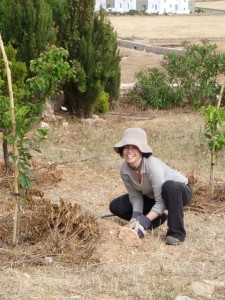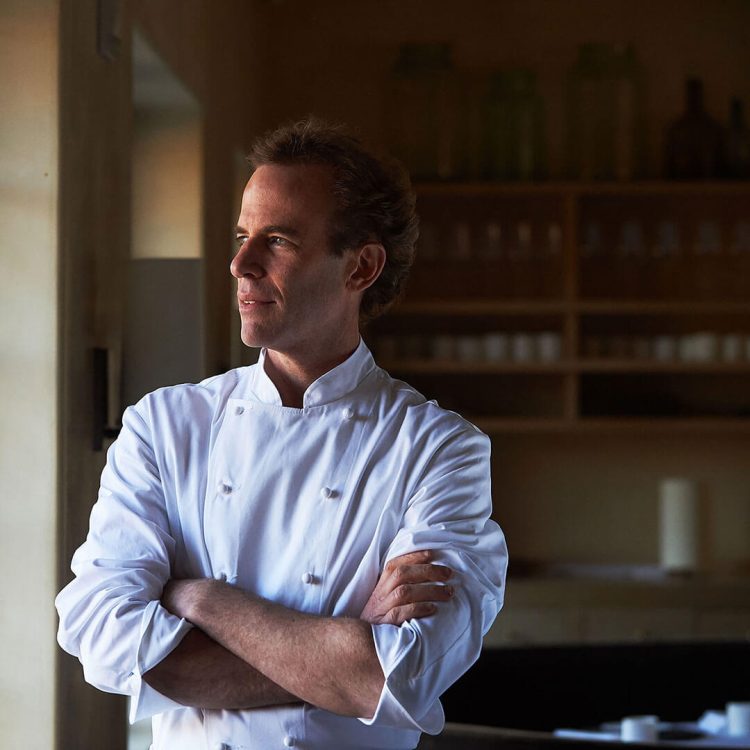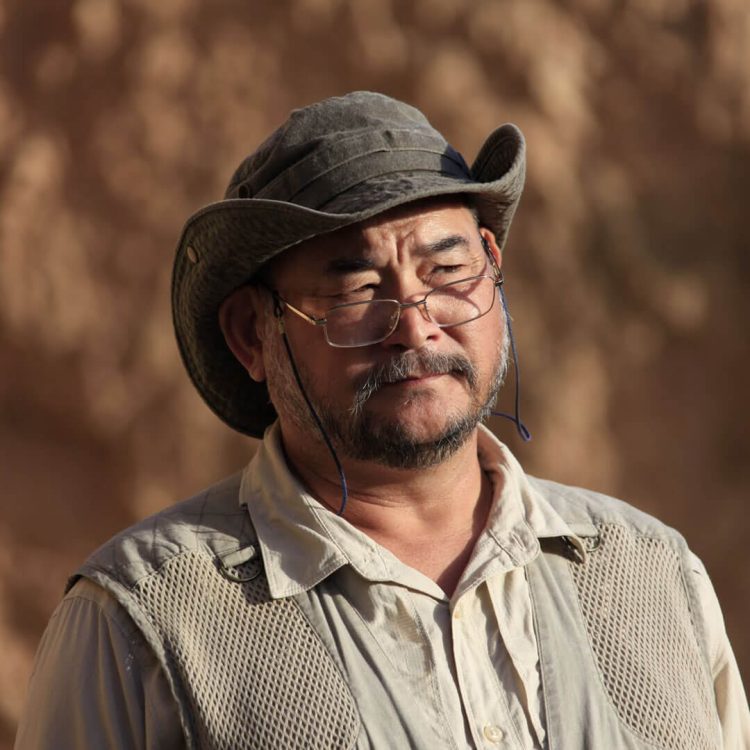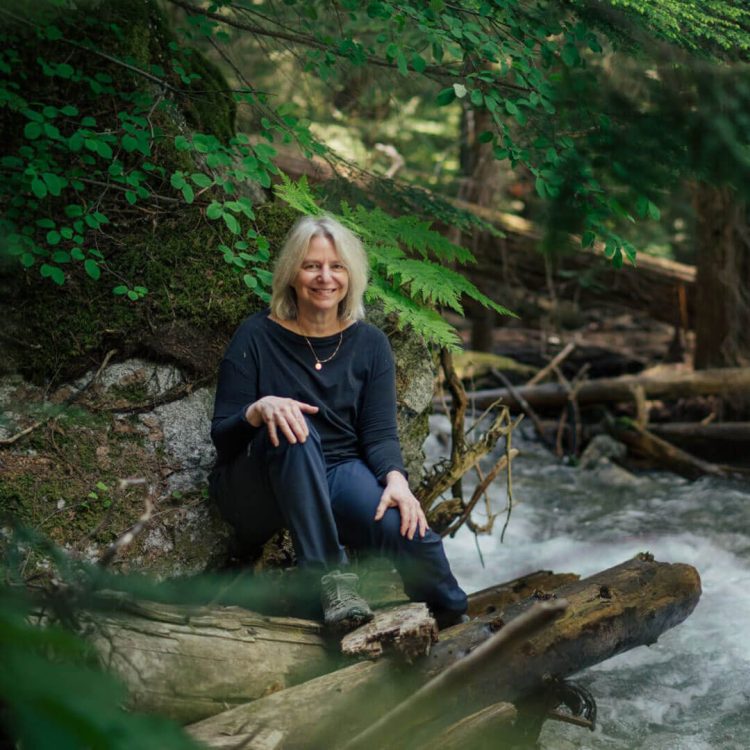The landscape of the Cyclades has always fascinated me. Everything is intense about it, the aromas, the colours, the sounds, the forms, the light. The spirit feels free, uplifted by the wind, roaming in the distant horizon with no limits of vision. The harshness of the rock, the clear forms of the barren hills, the sharp smell of the wild thyme and oregano, the crystal clarity of the water, the deep endless blue of the sky, magic, dramatic, unforgettable.
-
Alas, permaculture* has shuttered this romantic view of mine about the stunning Greek landscape. Because now I read it in a totally different way. The rock gives me the message of agony of a land that turns to desert, the barren hills crave for the presence of trees, the humble wild herbs struggle to repair the suffering ecosystem and get life going, the crystal clear water indicates that there is hardly any marine life in the Mediterranean, the deep blue sky evokes the scarcity of rain.
The situation is not so good. But it is too late to be a pessimist. Let’s get to work and heal the land, it urgently needs our help.
-

Mulching the swales around the fruit-trees
There is a lot we can do in our own garden, with modest means and without much effort. In fact, sometimes, what we really need is NOT to do certain things that we have always thought as beneficial for the land.
So, today, let’s focus on soil and see what we can do to conserve the soil left, bring it back to life and create as much new soil as possible.
1. Keep the soil covered at all times
Soil is an amazing material teeming with billions of life forms: bacteria, microbes, fungi, plants and animals of all sizes, working their way on and in it, sustaining all flora and fauna on terra firma. When you cover the soil, you provide shelter for all these beneficial organisms, regulate the temperature, prevent evaporation of water, improve the capacity of the earth to store the water in it, prevent erosion and desertification. You can cover the soil either with mulching or with planting.
Mulching is the covering of the ground with different kinds of materials: plant residues (pruned branches, grass clippings, weeds, dry leaves, bark, wood,…), cardboard boxes, newspapers, old carpets and clothes, even stones! The thickest the mulch the better the results. When you use organic materials you also have the benefit of constantly creating new soil from the decomposition of the organic matter.
Another way to keep the soil covered is to grow ground cover plants below your shrubs and trees and to plant thick so that you don’t leave any bit of soil uncovered.
2. Make compost with your kitchen “waste”
Making compost is very much like cooking, which can be as simple and crude as boiling an egg or as elaborate as the most complicated french recipe you can think of. The most important thing, though, is to just do it. If you feel you do not want to spend your time turning heaps of semi-decomposed food, measuring temperatures and PH, just dig a hole in the ground, throw your vegetable and fruit scraps in and cover it again. Remember to stay away from the roots of your plants, though, and avoid burying meat and dairy because you might attract rodents or other animals. We will talk in more detail about compost making in a later post.
3. Plant all kinds of plants and especially trees
It is hard to exaggerate about the benefit of planting in nature. Oxygen and food may be the most important yields of plants but there is so much more than this: Plants yield organic matter continuously and enrich the soil, break hard soils with their roots, regulate the temperature, give shelter to smaller plants and animals, function as wind breaks, improve the capacity of the soil to retain rainwater and so prevent water runoff and the subsequent erosion, return nutrients to the earth, bring rain, the list can be very very long.
Plant as many trees as you can, plant them before the rainy season starts in order to see them established faster. Whenever you plant a tree think of the children: you may not see the tree grow to its full development but you build a better future for the children of this world.
4. Stop turning and tillaging the soil
Just like exposing soil to the sun and wind, turning the soil results to killing massive numbers of useful microorganisms and also to soil compaction because of the use of heavy machines for the tillage. The outcome is dead soil, where nothing can grow without the use of chemicals, exactly as conventional agriculture does it. At the end of this line, desert is waiting.
5. Restore the stone walls and terraces in your land
By restoring these structures, which have been used around the Mediterranean for thousands of years, you reduce the speed of the rain water running off the sloped land and you prevent erosion significantly since most of the soil run down by the rain stays behind the wall. You can reinforce this process by planting both behind and in front of the stone walls.
This is only the beginning of the discussion or earth healing! If you need more information, have questions or comments about any of these methods, write to us!
Keep mulching, keep planting, keep caring for the earth.





